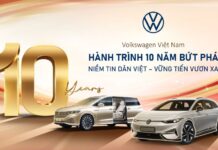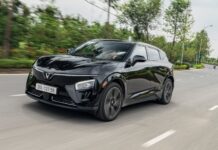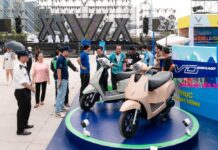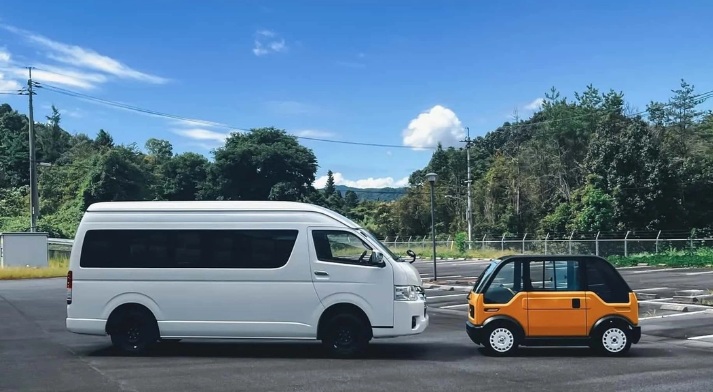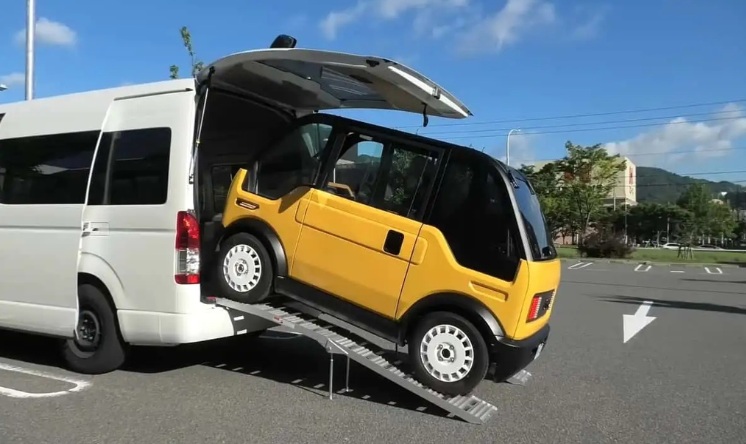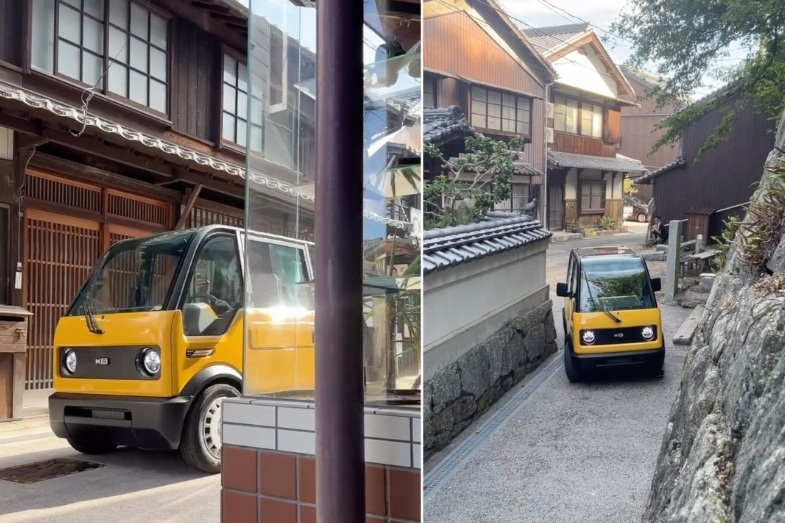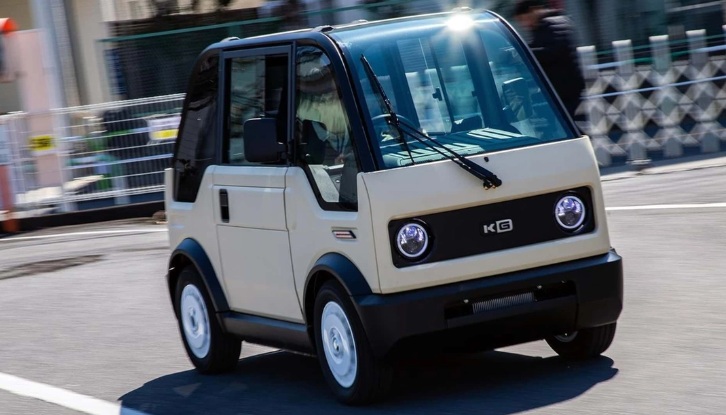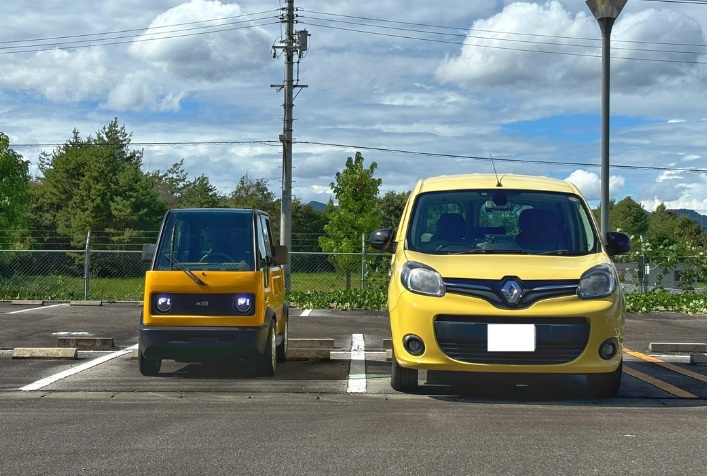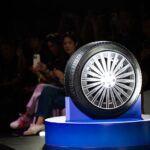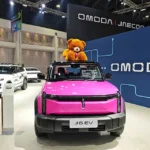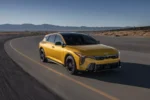While traditional Japanese automakers are still struggling to keep up in the global electric vehicle race, some domestic startups are showcasing their exceptional innovation and adaptability.
KG Motors, a Hiroshima-based startup founded in 2022, is gaining attention with the launch of its ultra-compact electric car named Mibot, designed specifically for congested urban environments.
Mibot quickly went viral on social media for its petite appearance. With overall dimensions of 2,490 x 1,130 x 1,465 mm (length x width x height), this car is even smaller than the Wuling Hongguang Mini EV and only slightly longer than a Honda SH scooter.
The design of the Mibot embodies the quintessential “kei car” style of Japan, featuring classic round headlights and friendly curves. Despite its modest size, the car is surprisingly well-equipped, including an 8-inch touchscreen, air conditioning, wireless connectivity, over-the-air software update capability, and a panoramic glass roof.
In terms of performance, the Mibot is fitted with a 7.68 kWh battery pack, enabling a maximum range of 100 kilometers on a single charge using AC 100V power (charging time of approximately 5 hours). With a top speed of 60 km/h, it’s perfectly suited for personal mobility within city limits.
KG Motors asserts that most Japanese citizens today use cars for short distances and often drive alone. According to the company, conventional cars, even in the minicar segment, offer more features than necessary, resulting in unnecessary costs and energy consumption. The Mibot is designed as an optimal solution to address this issue.
KG Motors plans to launch the Mibot at a price of approximately 1.1 million yen (roughly 197 million VND) and deliver the first batch of 3,000 cars in 2026.
While the Mibot may not be for everyone, it presents a fresh perspective for urban transportation, prioritizing compactness, efficiency, and personalized experiences.
Michelin’s Strategic Leap: Primacy 5 and the Evolution to Meet Vietnam’s Automotive Demands
Michelin, the renowned leader in driving experiences and cutting-edge material technology, has once again proven its adaptability and innovation. With the recent launch of the Primacy 5 tire range, Michelin has not only delivered on durability and superior safety but has also committed to reducing environmental impact. This new line of tires sets a new standard for modern driving, keeping pace with the dynamic changes in transportation infrastructure and the rising popularity of larger vehicles and electric cars.

